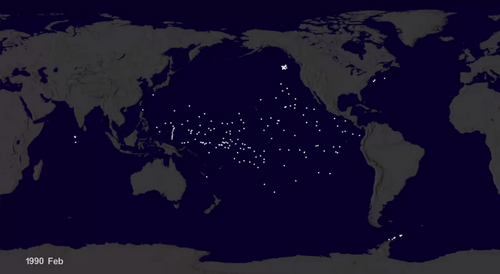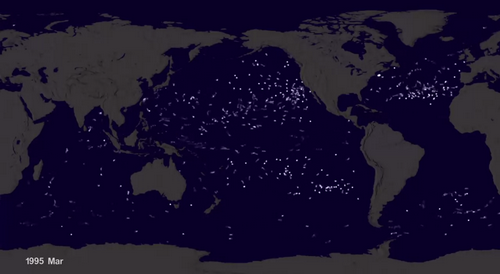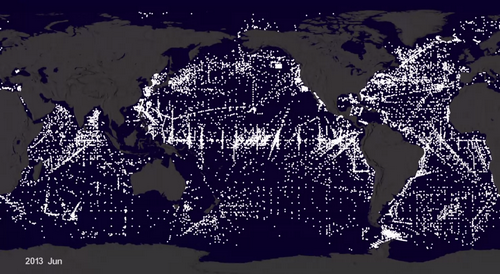Rubbish is Acquiring Oceans!
- AOG Team

- Oct 23, 2015
- 2 min read
Plastic is one of our most everyday-use materials. With poor waste management, large amounts of plastic debris enter the ocean, and it is rapidly increasing every year. Estimates of size is up to 15,000,000 square kilometres or 8% of the Pacific Ocean's area!
It is found all over the world, even in the remote areas as polar region waters.

This marine litter is human-created waste, from us, from as small sources as sewer and waterway to lake and sea, but can be transported great distances by ocean currents. Although, we may observe that the debris has been washed ashore, it actually accumulates in mid-ocean "gyres" - very large system of natural rotating ocean currents.

While most of the debris floats, some sinks to the ocean floor. This problem results in global environmental damages, including:
Death of marine animals, e.g., turtles, seabirds, seals, when they ingest plastic
Larger animals can be tied or stuck in the debris
Coral Reefs and other essential ecosystems can be damaged
Biodiversity is affected from Micro-organisms attached with debris
Marine lives can be contaminated, resulting in food chain, that is finally to us
You may know that typically, natural decomposition of plastic can take up to 600 years. However, the debris on seafloor take far longer to biodegrade due to lack of sunlight (UV), and cold water helps preserve its condition.Moreover, the debris is unable to be detected by settelites. Thus, it is way more difficult to discover and try to control.
Get rid of your rubbish properly. You can share it with your hands. One does One is Billion helps.
Lives started from water. Do not let lives also start dying from water…
ACTs Of Green
ONE SMALL CHANGE
-can make-
ONE BIG DIFFERENCE
Credit (Story & Image)










コメント